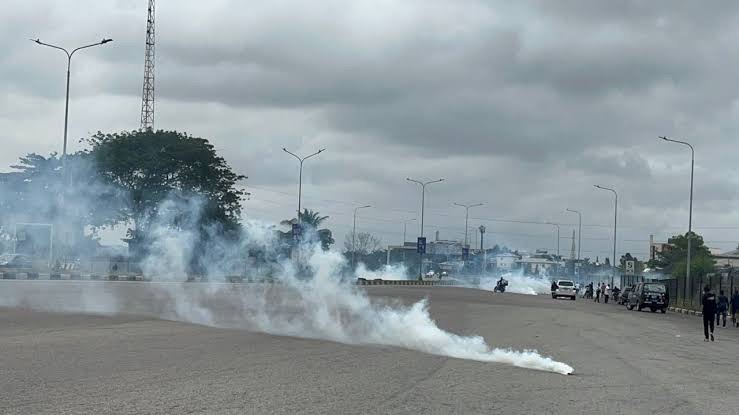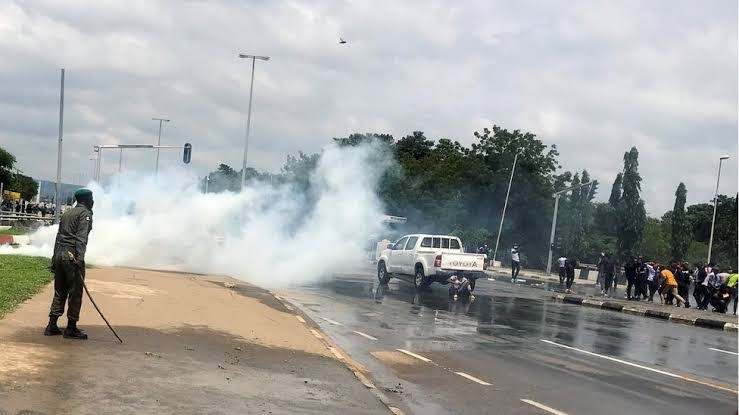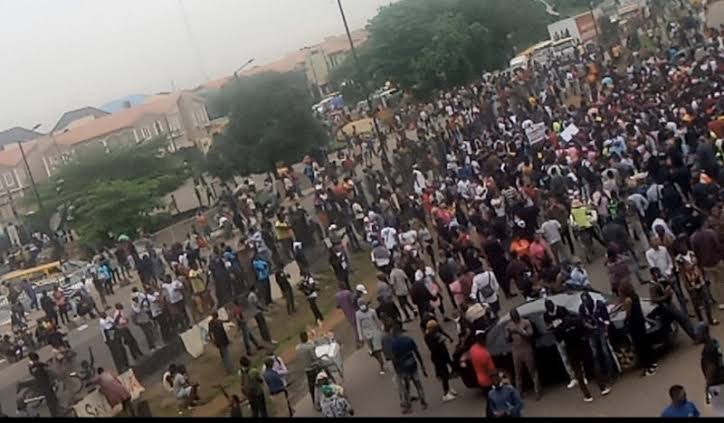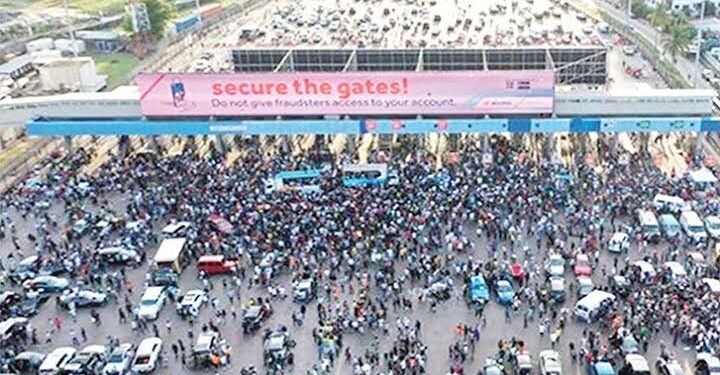On Thursday, a youth-led protest against the rising cost of living in Nigeria began, drawing attention across the country. The demonstrations started in Lagos, Nigeria’s commercial hub, where participants took to the streets from several key locations including Ikeja, Ojota, and Lekki. This marked a significant display of public dissent as people voiced their frustration over increasing economic pressures.
In Lagos, the protests quickly gained momentum as groups of demonstrators assembled in different parts of the city. The atmosphere was charged as people from various neighborhoods joined in to make their voices heard. The protests were not limited to Lagos alone; smaller demonstrations occurred in other parts of the city, reflecting a broad sense of discontent among Nigerians.

However, the protests faced a serious setback when the police intervened at the Lekki tollgate. This site holds particular significance in the context of Nigerian protests due to its association with the tragic events of October 2020. During that time, the tollgate was the focal point of a major demonstration against police brutality, which resulted in a violent clash and loss of lives. The incident, often referred to as the “Lekki Massacre,” has left a lasting impact on the public’s memory.

Despite the historical context, the police had issued warnings to protesters, advising them not to gather at the Lekki tollgate. The authorities stated that the tollgate was not one of the designated locations for the protests. According to the police, the decision was made to prevent potential unrest and maintain public order. Nonetheless, many demonstrators felt strongly about the location, given its symbolic importance in their ongoing struggle for better living conditions and justice.

As the protests continued, the use of teargas by the police at the Lekki tollgate highlighted the tense and volatile nature of the situation. The deployment of teargas served as a forceful measure to disperse the crowds, resulting in a chaotic scene at the tollgate. The action drew criticism from some quarters, with accusations that it was an attempt to stifle legitimate public dissent.
The police’s intervention at Lekki was a significant moment in the protests, underscoring the complex dynamics between the government and the citizens expressing their grievances. The standoff between protesters and law enforcement illustrates the broader challenges facing Nigeria as it grapples with economic hardships and demands for systemic change.


































